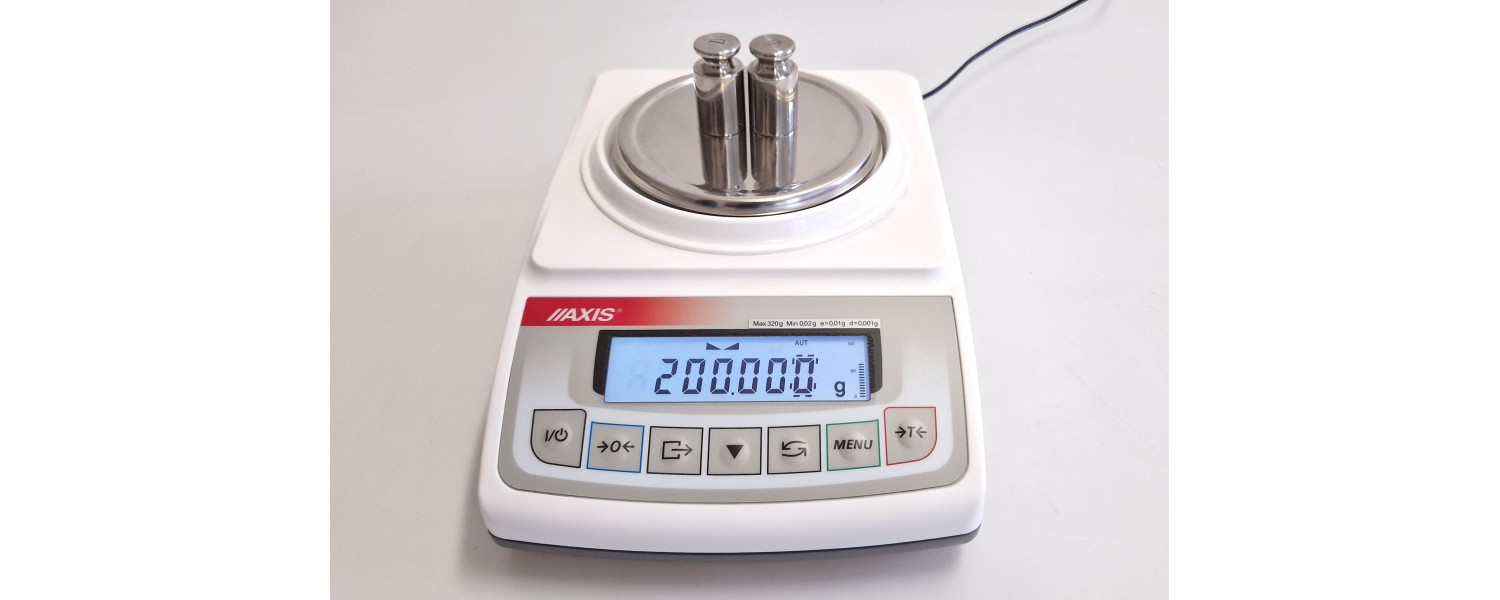
How does the scale "know" that if something weighs e.g. 5 grams, it should indicate 5 grams? Can the accuracy of the readings change over time and is there anything that can be done about it? How to avoid errors in weight measurements? The answer to all the above questions is scale calibration. What is it and what does it involve?
Calibration of scales
In order for the measurements indicated by the scale to be as accurate and correct as possible, the basic element is to properly service the device. Without this, the scale becomes less a measuring device than a functionally useless toy. Calibration of scales is an important activity, crucial for the correctness of measurements.
What is it?
Calibration of a scale can be compared to the process of verifying the scale's indications, i.e. checking the values and possible deviations that it should indicate at a given load. For this purpose, a reliable mass standard is used to read the scale's indications. On this basis, it is possible to assess the suitability of the scale for measurement activities, as well as to indicate the error or spread limit of the determined measurement error. In other words, scale calibration allows you to determine and, on this basis, possibly correct the accuracy of the device's measurements through adjustment.
Legalization and calibration of scales Another concept you may encounter in relation to the verification of scale measurement indications is legalization. While in the case of scale calibration, the process is performed by an accredited laboratory (although you can even carry out the calibration yourself), legalization is carried out by the Office of Measures or the manufacturer, his representative or distributor of scales with appropriate authorization. The difference between legalization and calibration of scales is important because they are two different procedures. Validation of a scale is a general confirmation that the accuracy of the scale is within the limits provided for in the standards, which may be quite wide. Legalization is mandatory for certain uses (e.g. in trade). Balance calibration, as indicated above, answers the question about the real accuracy of the scale's indications. A verified scale can also be subjected to calibration.
Scale calibration - summary
As you can see above, calibrating the scale is a very important activity that allows you to guarantee the correct readings of the scale. The process should be performed regularly due to the fact that the accuracy of the indications may decrease during operation. Providing the most accurate readings possible can be crucial in many fields that use precision scales, especially laboratory applications.
3 Comments
Kinguin bietet fantastische Aktionen und Deals auf eine breite Auswahl an Spielen und Software! kinguin gutschein
I found myself nodding along as I go through this. Your viewpoint is refreshing and it\'s apparent you put a lot of heart into your content.My web blog; bacon
The passion of yours for this is contagious! I cannot help but feel inspired to dive deeper into this subject because of your enthusiasm.Here is my blog bacon